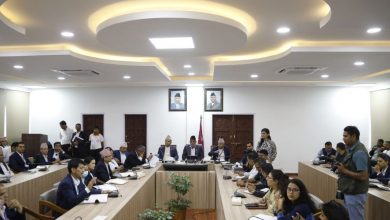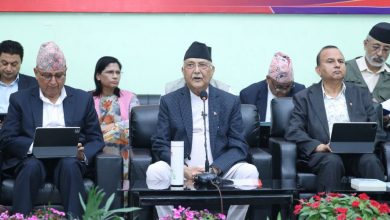95-point budget implementation guidelines issued
Work in three shifts, no transfer of project chiefs until completion
Kathmandu: The Ministry of Finance has issued a 95-point directive to all ministries, departments, and agencies to guide the implementation of the federal budget for the fiscal year 2025/26.
The guidelines, released on Thursday, detail procedures for budget authorization, program approval, fund allocation, project handover and implementation, and program amendments. They emphasize financial transparency, accountability, and effective monitoring.
Key provisions include the preparation of working procedures by mid-August for all plans and programs. Project managers are to be selected through internal competition and must not be transferred during the project period unless performance benchmarks are unmet. Officials will be held accountable for cost overruns resulting from delays in decision-making.
To expedite implementation, the guidelines instruct agencies to operate in three shifts and use updated, Nepal-specific bidding documents for procurement. Payments for completed work must be cleared within a month after each quarter. Funds once reduced from a capital program cannot be reallocated to the same activity.
Procurement should begin only after preparatory work is complete, including land acquisition, environmental clearance, and site management. Strict austerity measures have been imposed on administrative expenses such as utilities, fuel, office supplies, training, and travel. Government venues must be used for official events, and non-functional assets must be auctioned. Purchase of new vehicles will require prior approval and be allowed only in urgent cases.
Foreign visits funded by the government will also require prior approval, with exceptions only for high-level diplomacy or mandatory international representation. Offices are advised to use vacant government buildings; only if unavailable may they rent spaces outside main roads, and with minimal required facilities.
Annual financial statements must be submitted within 21 days of the fiscal year’s end. Monthly cash plans must be sent to the Ministry for effective fund management, and any payments over Rs. 1 billion must be reported a week in advance.
Unspent amounts from grants, excluding equalization grants, will be frozen if not used by year-end. Agencies are instructed to update disbursement records at least seven days before the fiscal year ends.
Online monitoring of development projects is required, along with progress reporting using sectoral indicators. Implementation challenges must be reported to the National Planning Commission and the Finance Ministry.
The first and second tranches of fiscal equalization grants will be released based on estimates, with later installments adjusted according to revenue collection performance. Unspent conditional, supplementary, and special grants must be returned to the Federal Consolidated Fund by mid-July.






Comments